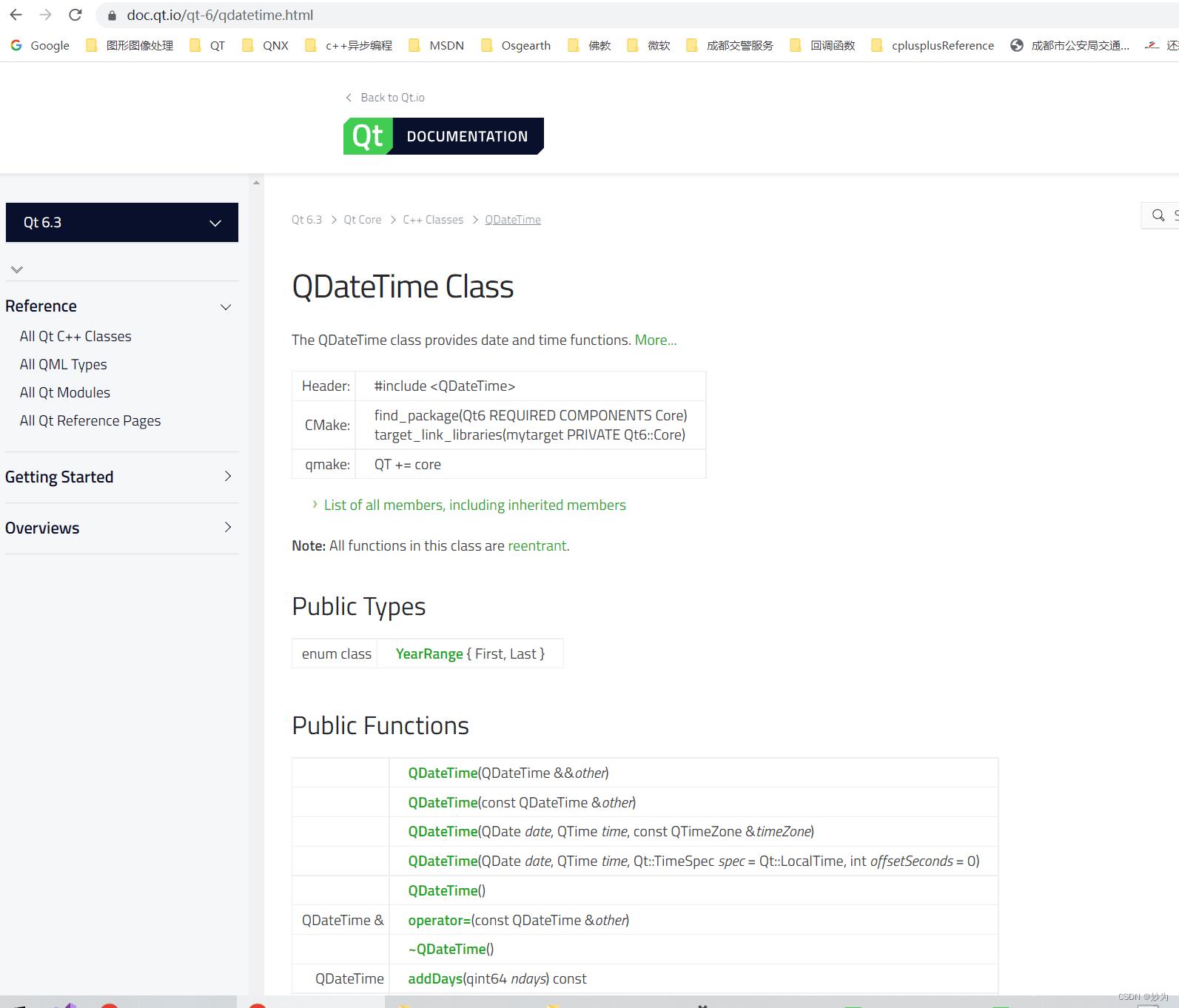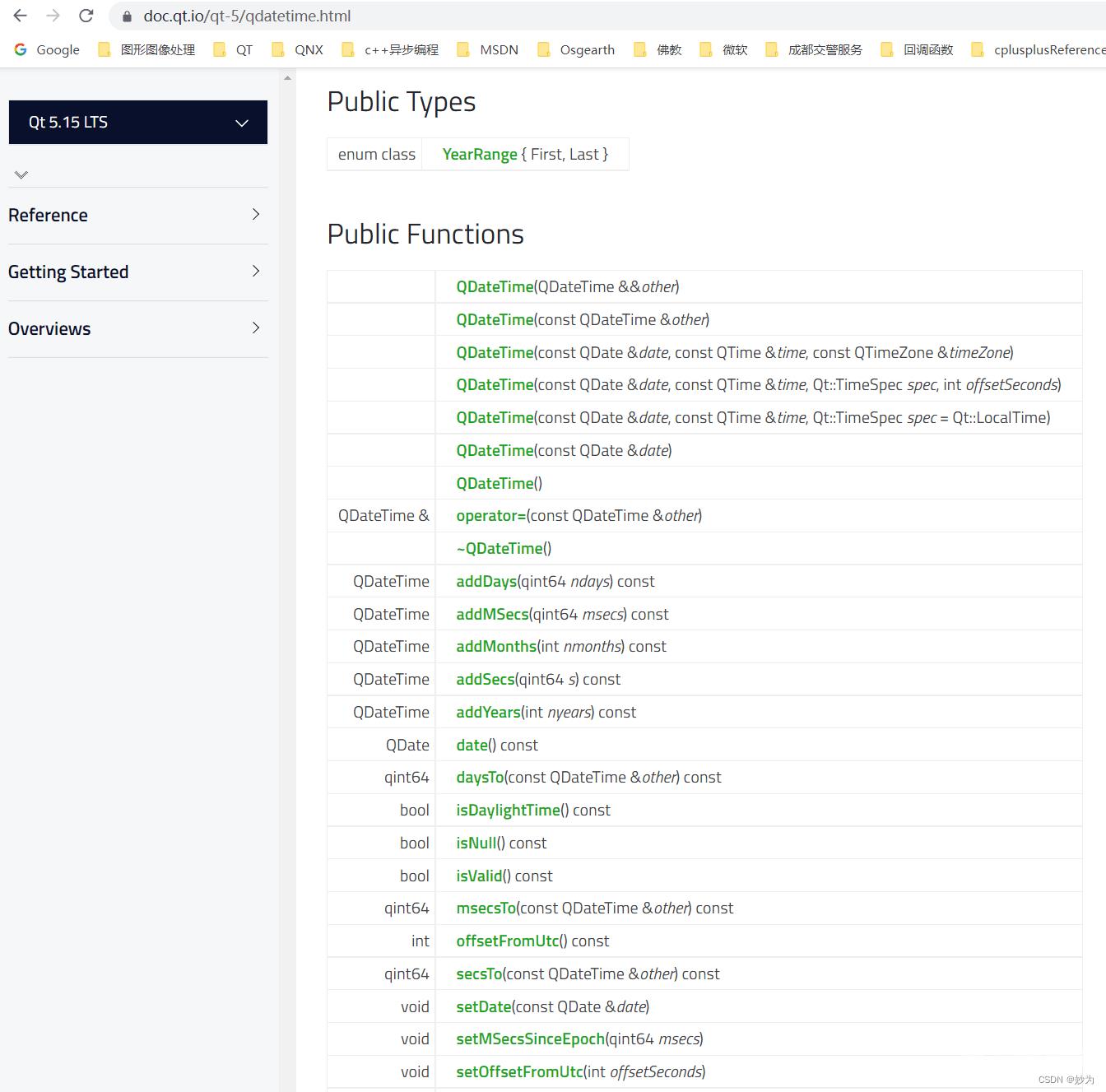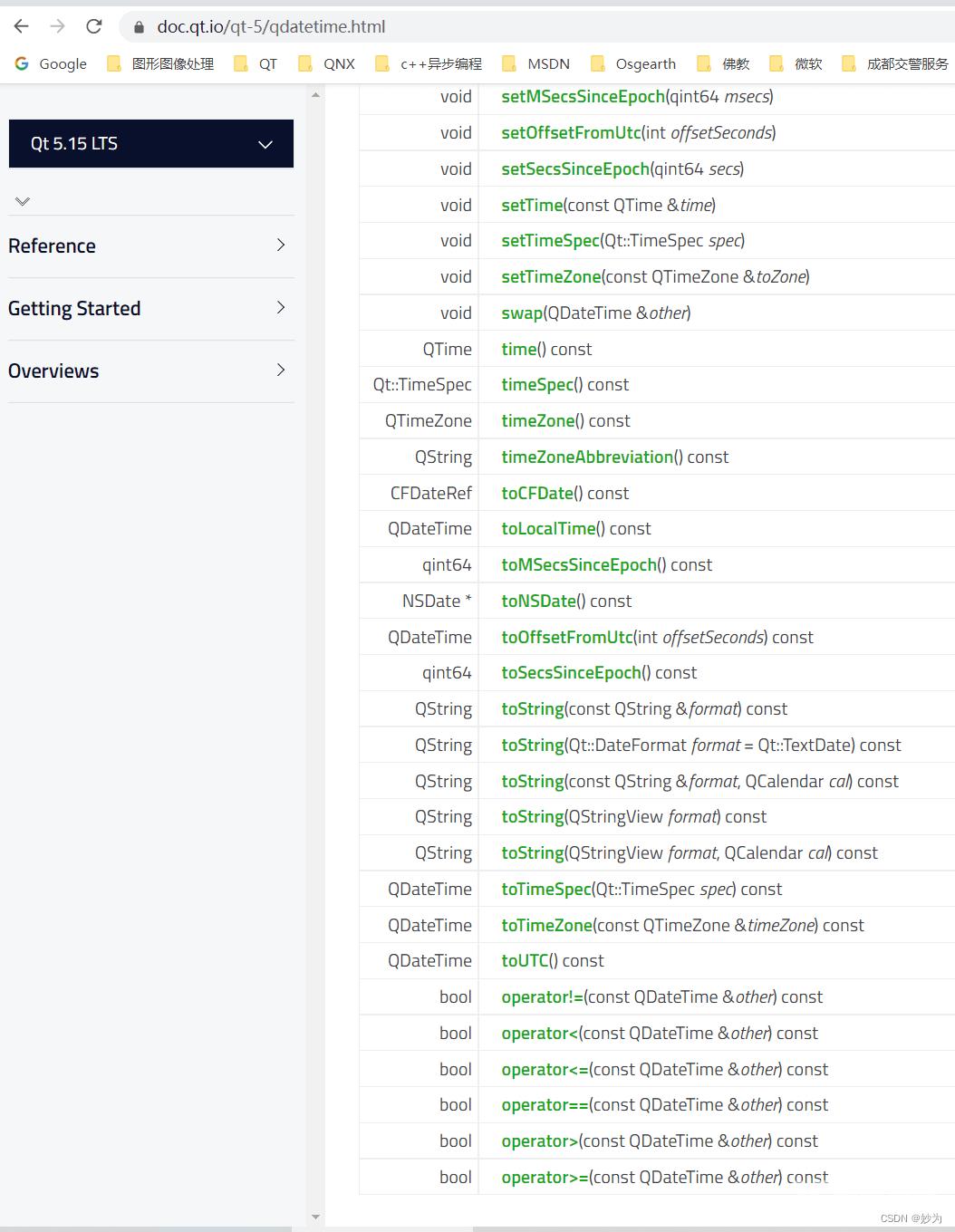目录 前言 一、QDateTime 二、常用的函数 1.示例代码 2.日期与时间戳互转 前言 如果一个程序比较耗时,我们又想知道性能的瓶颈在哪里,然后针对性的进行优化。这里暂时不考虑多线程
目录
- 前言
- 一、QDateTime
- 二、常用的函数
- 1.示例代码
- 2.日期与时间戳互转
前言
如果一个程序比较耗时,我们又想知道性能的瓶颈在哪里,然后针对性的进行优化。这里暂时不考虑多线程的情况。Qt中与时间相关的类大概有以下几个:
1.QDateTime
2.QTime
3.QDate
4.QTimeZone
5.QCalendar
是不是有点头大,反正我是懵圈了。。。。。。
这篇文章主要聊聊QDateTime
一、QDateTime
QDateTime官方文档

二、常用的函数
主要有以下常用函数


从官网描述来看大概意思:QDateTime 对象编码日历日期和时钟时间(“日期时间”)。它结合了QDate和QTime类的特性。它可以从系统时钟中读取当前日期时间。它提供了比较日期时间和通过添加秒数、天数、月数或年数来操作日期时间的函数。
1.示例代码
#include "MainWindow.h"
#include <QApplication>
#include <QTime>
#include <QDateTime>
#include <QDebug>
int main(int argc, char *argv[])
{
QApplication a(argc, argv);
MainWindow w;
// w.show();
// int iCount[10000000] = {1};
int *pAllocation = new int[10000000];
int item = 0;
QDateTime time1 = QDateTime::currentDateTime();
QTime startTime = QTime::currentTime();
for(quint64 i=0; i<9000000000; i++)
{
item = i;
}
QDateTime time2 = QDateTime::currentDateTime();
int days = time1.daysTo(time2);
qDebug() << "Cast days=" << days;
quint64 sTime = time1.toTime_t();
quint64 eTime = time2.toTime_t();
quint64 costTime = eTime - sTime;
qDebug() << "eTime - sTime=" << costTime;
QDateTime elapseTime = QDateTime::fromTime_t(costTime);
qDebug() << "Elapsed time=" << elapseTime;
QTime endTime = QTime::currentTime();
int elapsed = startTime.secsTo(endTime);
qDebug() << startTime.secsTo(endTime);
// int ndaysec = 24*60*60;
// qDebug() << "Day = " << (etime - stime)/(ndaysec) + ((etime - stime)%(ndaysec)+(ndaysec-1))/(ndaysec) - 1;
QDateTime dateTime;
QString elapsedTime = dateTime.fromTime_t(elapsed).toString("yyyy-MM-dd hh:mm:ss[:zzz]");
qDebug() << "Cast time=" << elapsedTime;
return a.exec();
}
注意如果考虑毫秒、微秒、纳秒级在计算时间差的时候,建议使用quint64,否则很容易溢出。
另外boost当中的chrono也非常好用,而且精确度可以达到纳秒级,当然这里是考虑了cpu的时钟频率。
#include <iostream>
#define BOOST_DATE_TIME_POSIX_TIME_STD_CONFIG // 必须在头文件之前定义宏,否则无效!!!
#include <boost/date_time/posix_time/posix_time.hpp>
int main(int argc, char **argv) {
// 第四个参数,如果精确度是微秒,单位就是微秒,如果精确度是纳秒,单位就是纳秒
boost::posix_time::time_duration td(1, 10, 30, 1000); // 01:10:30
// 查看当前的精确度
if (td.resolution() == boost::date_time::nano) printf("精确度:纳秒\n");
else printf("精确度:微秒\n");
// 返回秒的小数部分的位数(微秒6位,纳秒9位)
std::cout << td.num_fractional_digits() << std::endl;
// 对于以下输出,默认微秒精度输出:01:10:30.001000 纳秒精度输出:01:10:30.000001000
std::cout << td << std::endl;
// 对于以下输出,在纳秒精度下,微秒会被忽略(微秒:4230001 纳秒:4230000)
std::cout << td.total_milliseconds() << std::endl;
// 下面的这个方法,就是输出小数点后面的数值,单位随精确度变化
std::cout << td.fractional_seconds() << std::endl;
return 0;
}
2.日期与时间戳互转
QString starttime ="2022-11-11 12:00:00"; QString endtime = "2022-11-13 12:00:01"; QDateTime start = QDateTime::fromString(starttime, "yyyy-MM-dd hh:mm:ss"); QDateTime end = QDateTime::fromString(endtime, "yyyy-MM-dd hh:mm:ss"); uint stime = start.toTime_t(); uint etime = end.toTime_t(); QDateTime time = QDateTime::fromTime_t(timeT);
到此这篇关于Qt QDateTime计算时间差的实现示例的文章就介绍到这了,更多相关Qt QDateTime计算时间差内容请搜索自由互联以前的文章或继续浏览下面的相关文章希望大家以后多多支持自由互联!
